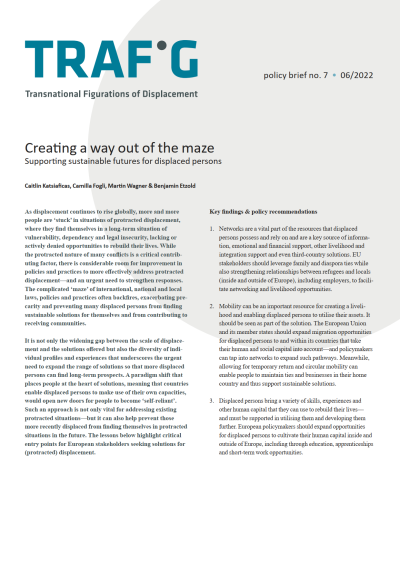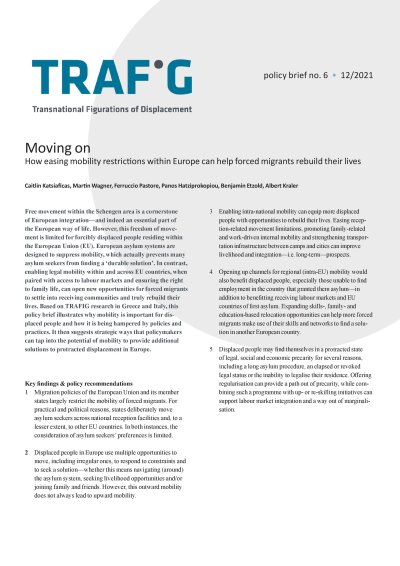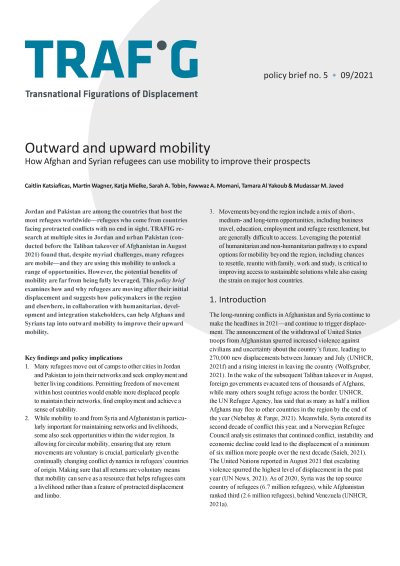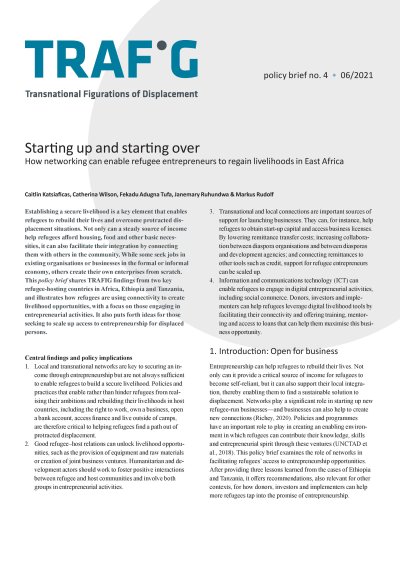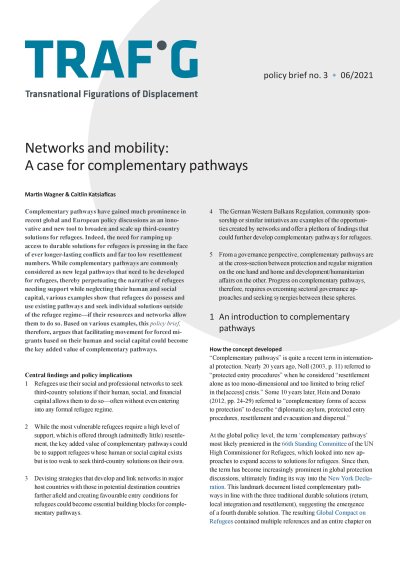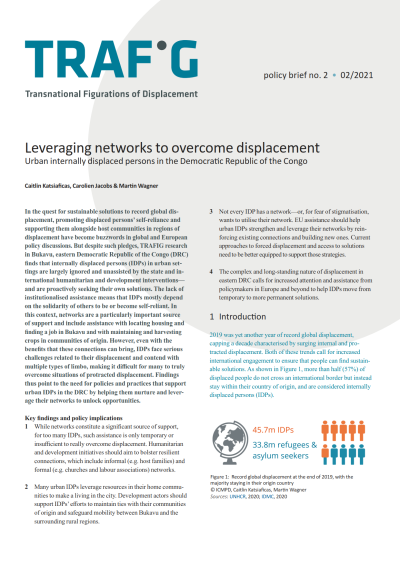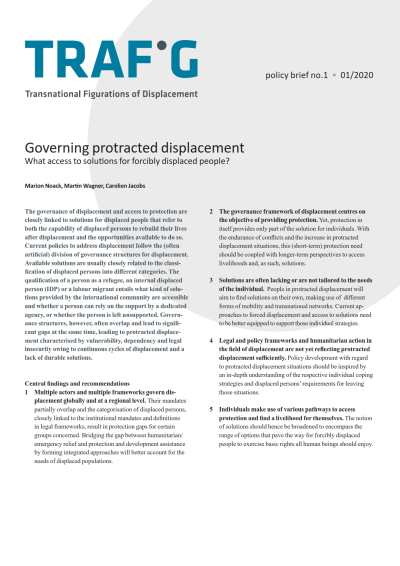Policy Briefs
TRAFIG policy brief no. 7
Creating a way out of the maze: Supporting sustainable futures for displaced persons
As displacement continues to rise globally, more and more people are ‘stuck’ in situations of protracted displacement, where they find themselves in a long-term situation of vulnerability, dependency and legal insecurity, lacking or actively denied opportunities to rebuild their lives. Drawing lessons from more than 3 years of research, this policy brief highlights critical entry points for European stakeholders seeking solutions for (protracted) displacement. Read more
TRAFIG policy brief no. 6
Moving on
How easing mobility restrictions within Europe can help forced migrants rebuild their lives
Free movement within the Schengen area is a cornerstone of European integration – and indeed an essential part of the European way of life. However, this freedom of movement is limited for forcibly displaced people residing within the European Union (EU). European asylum systems are designed to suppress mobility, which actually prevents many asylum seekers from finding a ‘durable solution’. In contrast, enabling legal mobility within and across EU countries, when paired with access to labour markets and ensuring the right to family life, can open new opportunities for forced migrants to settle into receiving communities and truly rebuild their lives. Read more
TRAFIG policy brief no. 5
Outward and upward mobility
How Afghan and Syrian refugees can use mobility to improve their prospects
Jordan and Pakistan are among the countries that host the most refugees worldwide—refugees who come from countries facing protracted conflicts with no end in sight. TRAFIG research at multiple... Read more
TRAFIG policy brief no. 4
Starting up and starting over
How networking can enable refugee entrepreneurs to regain livelihoods in East Africa
Establishing a secure livelihood is a key element that enables refugees to rebuild their lives and overcome protracted dis placement situations. Not only can a steady source of inco... Read more
TRAFIG policy brief no. 3
Networks and mobility
A case for complementary pathways
Complementary pathways have gained much prominence in recent global and European policy discussions as an innovative and new tool to broaden and scale up third-country solutions for refugees. Indeed, the need for ramping up access to durabl... Read more
TRAFIG policy brief no. 2
Leveraging networks to overcome displacement
Urban internally displaced persons in the Democratic Republic of the Congo
In the quest for sustainable solutions to record global displacement, promoting displaced persons’ self-reliance and supporting them alongside host communities in regions of di... Read more
TRAFIG policy brief no. 1
Governing protracted displacement
What access to solutions for forcibly displaced people?
The governance of displacement and access to protection are closely linked to solutions for displaced people that refer to both the capability of displaced persons to rebuild their lives after displacement and the opportunities available to do so. Current policies to address displacement follow the (often artificial) division of governance structures for displacement. Governance structures, however, often overlap and lead to significant gaps at the same time, leading to protracted displacement characterised by vulnerability, dependency and legal insecurity owing to continuous cycles of displacement and a lack of durable solutions.
This policy brief takes the example of an internally displaced person (IDP) in the DR Congo to show what solutions IDPs can access within the different regimes governing displacement. Read more

